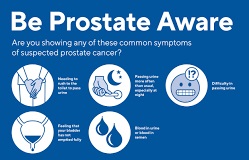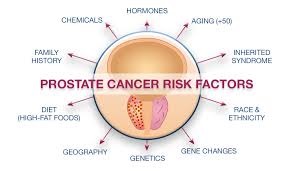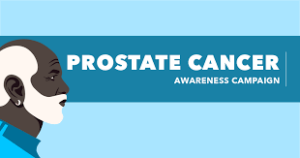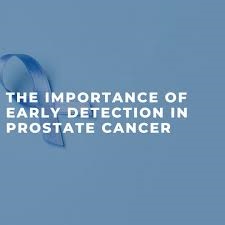PREVENTING PROSTATE CANCER

Prostate cancer, one of the most common cancers among men, necessitates a proactive approach to prevention and risk reduction. By adopting risk reduction strategies, such as maintaining a healthy diet, engaging in regular exercise, and keeping a healthy weight, men can significantly lower their risk of developing this disease. Additionally, raising awareness about this cancer risk factors and emphasizing the importance of early detection are crucial steps in combating the disease effectively. This guide explores these preventive measures in depth, providing a well-rounded understanding of how to reduce the risk of prostate cancer.
UNDERSTANDING PROSTATE CANCER RISK FACTORS

To begin with, it is essential to understand the key risk factors associated with this cancer. While some factors, such as age and family history, are beyond an individual’s control, others can be managed through lifestyle changes. According to the American Cancer Society, the most significant risk factors include advancing age, family history and race (American Cancer Society, 2023). Although these factors cannot be altered, adopting healthy lifestyle choices can help mitigate risk.
THE ROLE OF A HEALTHY DIET FOR PREVENTING PROSTATE CANCER

- First and foremost, maintaining a healthy diet is a cornerstone of the above discussed cancer prevention. Research indicates that certain dietary patterns may influence prostate cancer risk. For instance, a diet rich in fruits, vegetables, and whole grains has been associated with a lower risk of prostate cancer. Crucially, foods high in antioxidants, such as tomatoes and berries, may offer protective benefits. The National Cancer Institute highlights that tomatoes, which are rich in lycopene, an antioxidant, might reduce the risk of prostate cancer (National Cancer Institute, 2022).
- In addition, reducing the intake of red and processed meats can be beneficial. Studies suggest that high consumption of these meats may be linked to an increased risk of prostate cancer (World Health Organization, 2023). Therefore, incorporating more plant-based proteins, such as beans and legumes, can contribute to a healthier diet.
- Moreover, limiting dietary fat intake is another important aspect. High-fat diets, particularly those rich in saturated fats, may elevate the risk of prostate cancer. Consequently, opting for healthier fats, such as those found in nuts, seeds, and avocados, can be advantageous. The American Institute for Cancer Research supports these recommendations, emphasizing the role of diet in cancer prevention (American Institute for Cancer Research, 2023).
THE IMPORTANCE OF REGULAR EXERCISE

- Transitioning to physical activity, regular exercise is also a vital component of prostate cancer risk reduction. Engaging in physical activity helps maintain a healthy weight, reduces inflammation, and enhances overall well-being. According to the Mayo Clinic, men who are physically active are less likely to develop prostate cancer compared to those who lead sedentary lifestyles (Mayo Clinic, 2023).
- Furthermore, exercise contributes to weight management, which is crucial for reducing cancer risk. Obesity has been linked to an increased risk of various cancers, including prostate cancer. By incorporating aerobic exercises, such as walking, running, or cycling, as well as strength training exercises, men can improve their health and reduce their risk. The American Cancer Society recommends at least 150 minutes of moderate aerobic activity or 75 minutes of vigorous activity per week, along with muscle-strengthening activities on two or more days per week (American Cancer Society, 2023).
- Additionally, regular physical activity can help manage stress and improve mental health, further contributing to overall cancer prevention. As stress can impact immune function and overall health, incorporating activities like yoga or mindfulness into one’s routine can be beneficial.
MAINTAINING A HEALTHY WEIGHT TO REDUCE RISK OF PROSTATE CANCER

- In line with the previous points, maintaining a healthy weight is closely connected to reducing prostate cancer risk. Obesity and excess body fat can increase inflammation and hormone levels that may contribute to cancer development. The National Comprehensive Cancer Network emphasizes that achieving and maintaining a healthy weight through a balanced diet and regular exercise is crucial for lowering cancer risk (National Comprehensive Cancer Network, 2023).
- To illustrate, a study published in the Journal of Clinical Oncology found that men with a higher body mass index (BMI) were at greater risk of developing aggressive forms of prostate cancer (Journal of Clinical Oncology, 2022). Therefore, managing weight through healthy eating and regular physical activity is essential.
PROMOTING AWARENESS OF PROSTATE CANCER RISKS

- In addition to lifestyle changes, promoting awareness about prostate cancer risk factors is crucial. Education and awareness campaigns play a significant role in informing individuals about the risks and encouraging preventive measures. For instance, understanding the hereditary nature of prostate cancer can prompt men with a family history of the disease to be more vigilant and consider early screening options.
- Moreover, racial disparities in prostate cancer incidence and outcomes underscore the need for targeted awareness efforts. African American men, in particular, have a higher risk of developing and dying from prostate cancer. The Prostate Cancer Foundation highlights the importance of tailored educational initiatives to address these disparities and improve outcomes (Prostate Cancer Foundation, 2023).
- Furthermore, engaging in community outreach and public health campaigns can help disseminate vital information about risk factors, symptoms, and preventive measures. Such initiatives can encourage men to adopt healthier lifestyles and participate in regular screenings.
ENCOURAGING EARLY DETECTION OF PROSTATE CANCER

- Lastly, emphasizing the importance of early detection cannot be overstated. Early detection of prostate cancer can lead to more effective treatment and better outcomes. Prostate-specific antigen (PSA) testing and digital rectal exams (DRE) are commonly used screening methods. Specifically, the U.S. Preventive Services Task Force (USPSTF) recommends that men discuss the benefits and risks of PSA screening with their healthcare providers, particularly if they are at higher risk due to age or family history (USPSTF, 2023).
- Additionally, early detection through routine screenings can identify prostate cancer before symptoms develop, allowing for timely intervention. Men should have open discussions with their healthcare providers about their risk factors and the appropriate age to begin screening.
CONCLUSION.
prostate cancer prevention and risk reduction involve a multifaceted approach, including adopting a healthy diet, engaging in regular exercise, and maintaining a healthy weight. Promoting awareness of risk factors and encouraging early detection are equally important in managing and reducing the impact of prostate cancer. By implementing these strategies, men can take proactive steps towards safeguarding their health and improving their quality of life.
REFERENCES:
- American Cancer Society. (2023). Prostate Cancer Risk Factors. Retrieved from American Cancer Society
- American Institute for Cancer Research. (2023). Diet, Nutrition, and Cancer Prevention. Retrieved from American Institute for Cancer Research
- Journal of Clinical Oncology. (2022). Impact of Body Mass Index on Prostate Cancer Risk. Retrieved from Journal of Clinical Oncology
- Mayo Clinic. (2023). Exercise and Prostate Cancer. Retrieved from Mayo Clinic
- National Cancer Institute. (2022). Lycopene and Prostate Cancer. Retrieved from National Cancer Institute
- National Comprehensive Cancer Network. (2023). Guidelines for Prostate Cancer. Retrieved from National Comprehensive Cancer Network
- Prostate Cancer Foundation. (2023). Understanding Prostate Cancer Disparities. Retrieved from Prostate Cancer Foundation
- USPSTF. (2023). Prostate Cancer Screening Recommendations. Retrieved from U.S. Preventive Services Task Force
- World Health Organization. (2023). Processed Meat and Cancer Risk. Retrieved from World Health Organization